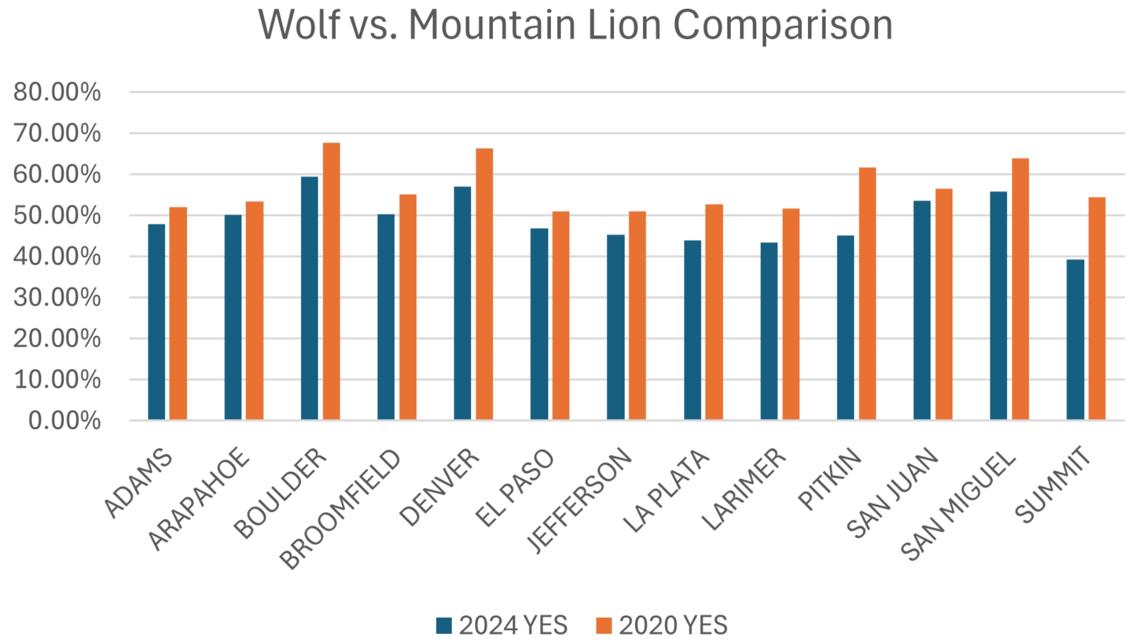DENVER — Trust the professionals. That's what a group of Colorado's wildlife professionals want, rather than voters creating animal-related laws.
“I prefer not to see another ballot initiative for wildlife management," said Casey Westbrook, the board president for the Colorado Wildlife Employees Protective Association (CWEPA).
CWEPA is a fraternal organization that offers additional benefits to Colorado Parks and Wildlife (CPW) employees.
Some call voting on wildlife management "ballot box biology." Westbrook just calls it like he sees it.
“I don’t try to tell my surgeons how to do surgery on me, right? I think there’s a reason that we put people in place to do specialized jobs and that’s what we are, we’re a specialized field," he said.


Westbrook is a district manager for CPW and can share the voice of more than 200 of his coworkers through his role with CWEPA.
"Try to work within the existing system rather than go to a ballot," he said.
In 2016, the CPW Commission passed a resolution opposing "the intentional release of any wolves into Colorado." The commission did not have the final say. In 2020, 50.9% of Coloradans voted to reintroduce wolves. Most of the "Yes" votes came from 13 counties.
"So, they'll come to the parks and wildlife commission, and if they don't get the results they seek there, then it's been times it's been moved to a legislative action, and if they don't get the result they seek there, then it becomes a ballot initiative," Westbrook said. He explained these votes don't necessarily lead to the best laws.
"The further you move toward the ballot initiative process, the further you move away from the ability of the experts in the field to have their input," Westbrook told 9NEWS.
This year, a vote to ban hunting mountain lion, bobcats, and lynx made Westbrook nervous. The proposition failed, with 54.8% of voters rejecting it.
"[I'm] relieved, to be honest with you," Westbrook said.


The mountain lion hunting ban received less support in all 13 counties that supported grey wolf reintroduction.
Summit County, where CPW released a wolf, went from 54.4% supporting the reintroduction to 39.3% supporting the hunting ban.
CPW named Pitkin County as a candidate to have wolves released this winter. In 2020, 61.7% of voters supported reintroduction. This year, 45.1% supported the hunting ban.
"I think, if nothing else, folks have learned that there's a lot more complexity than what can just be put in a few sentences on the ballot," Westbrook said.
When it comes to a few sentences in the blue book versus more than a century of experience, Westbrook hopes people will trust the professionals to do their jobs.
"I believe it in my heart, that we are all trying to do what’s right for wildlife," he said. "We may not agree on what that is, but we are trying to do that same common thing."

